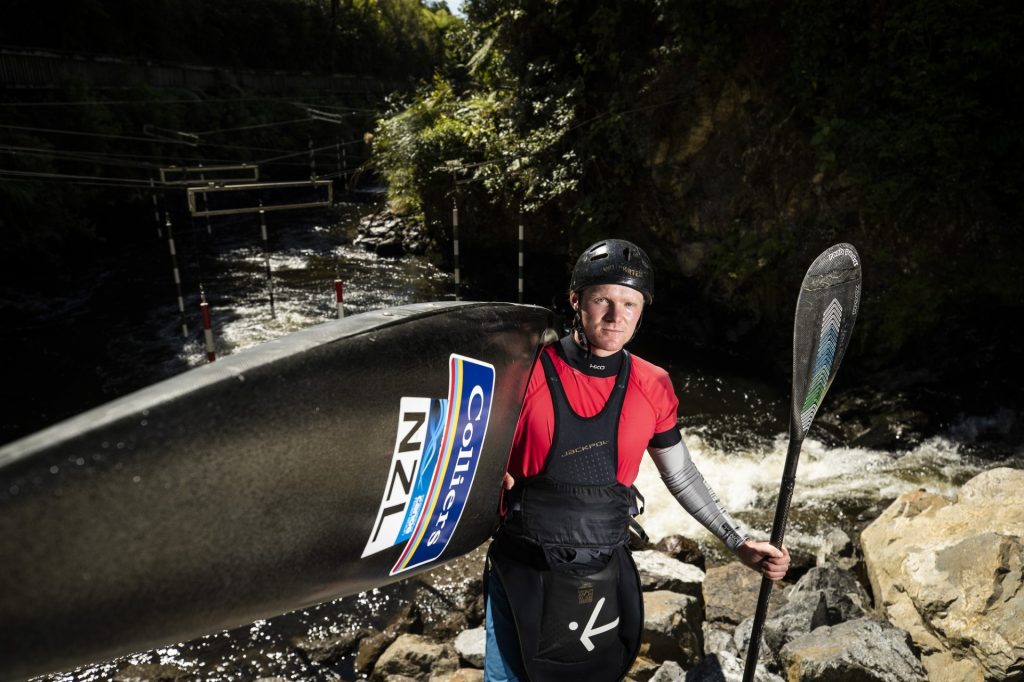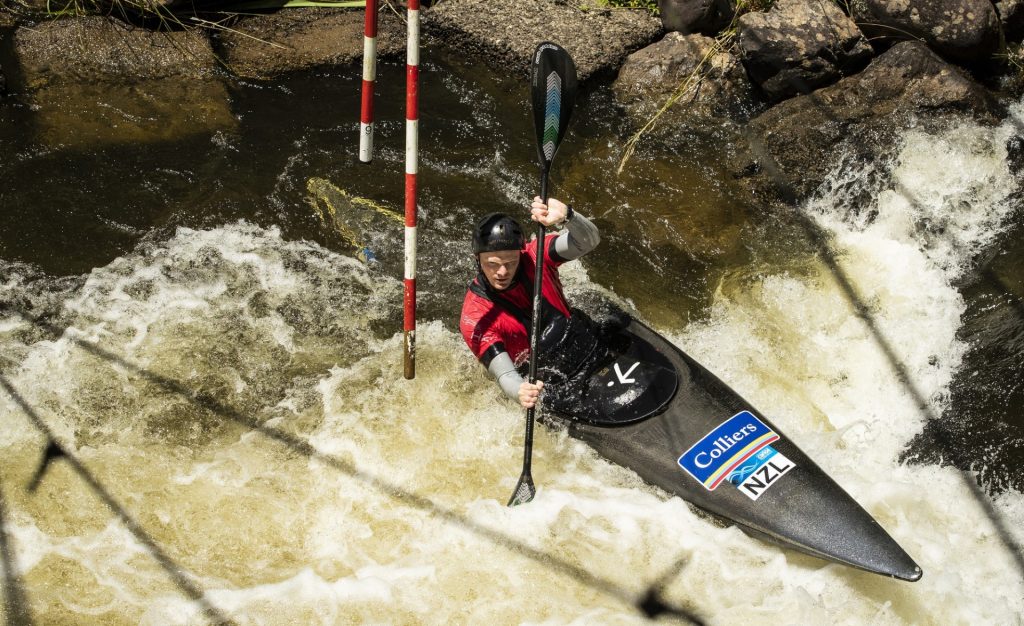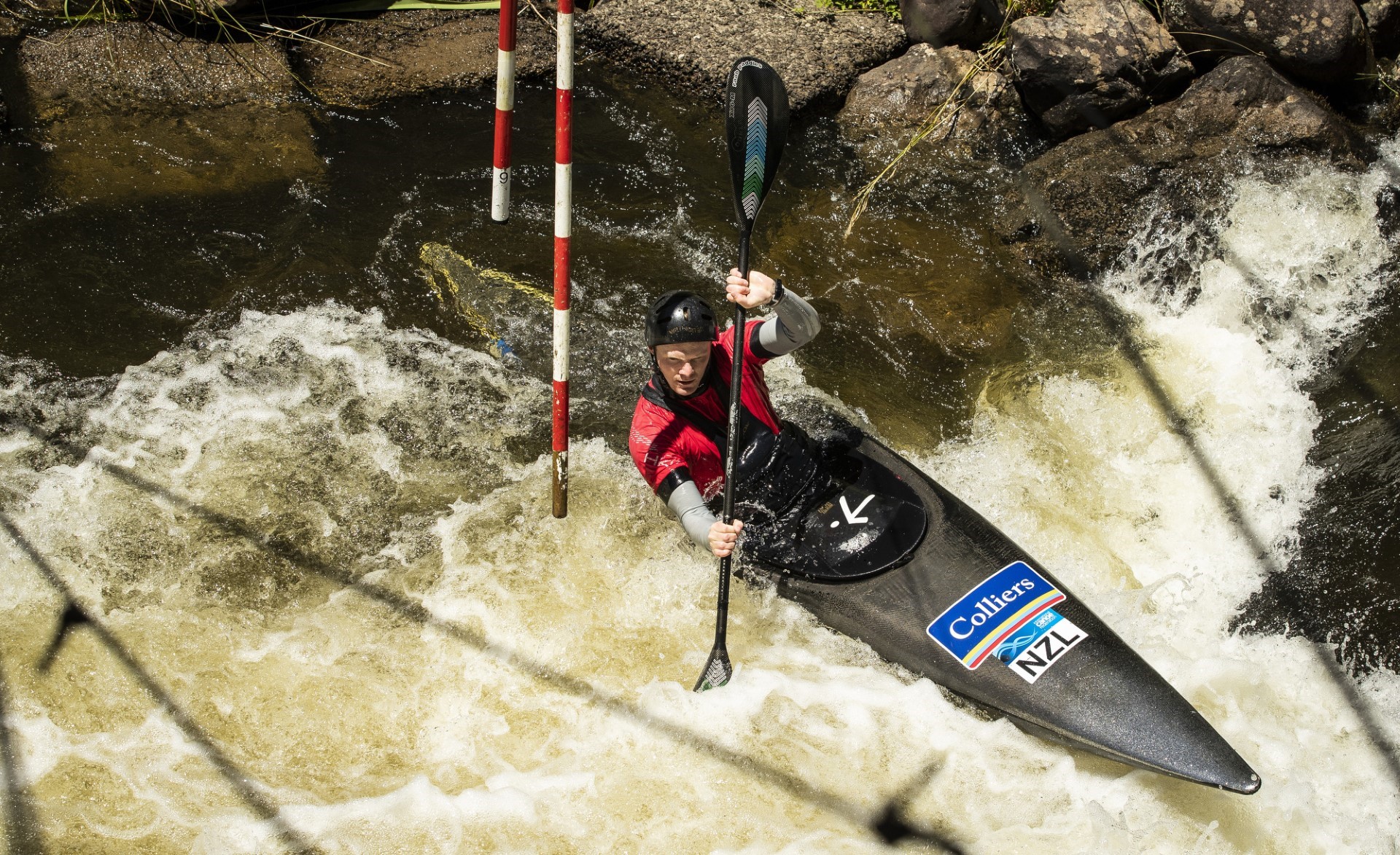New Zealand kayaker Nick Collier can still remember when he caught the racing bug.
At 14 years old he was corralled into filling the domestic quota for an international competition.
‘‘There was all these huge names . . .and little Nick Collier, of Central Otago, amongst them.’’
Collier, 20, looked back on that competition fondly.

After winning a silver medal in the under-23 men’s kayak cross at the Canoe Slalom World Championships in Poland last year, he is inspiring a new generation of kayakers, a change he described as ‘‘a wee bit surreal’’.
He grew up in Alexandra and had been involved in a range of sports.
He remembered watching his older brother kayak when he was about 11.
‘‘I realised it would be a lot more fun if I was also out on the water.’’
He started in the Central Otago Whitewater programme, and made his first development squad at 14 when he began racing competitively.
Now he hoped he could be someone a new generation could admire.
‘‘I try to . . .be supportive and helpful to this next crew because I got a whole lot of help during my junior career.’’
Collier has just completed his first international season, the highlight of which was his historic silver in August at the world U23 championship.
He recalled sitting on the starting ramp in a borrowed kayak beside racers he had looked up to for years.
‘‘[It] was really cool but I certainly felt like I was out of my depth.’’
By his own admission, he only just scraped into the finals after a racer who placed above him was disqualified.
‘‘[When] I realised I was through to the next round . . .it was a little overwhelming.’’
His near miss only made him more determined to capitalise on the opportunity.
‘‘Throughout the rest of the day I was just sticking to the game plan — it paid off.’’
Over the holiday break, he competed at the Nujiang Wildwater Canoeing International Open in China.
He consistently scored highly, particularly in the challenge race where he placed second.
‘‘A lot of the other athletes . . . openly said that this was the biggest whitewater they’ve ever paddled, while I was more in a state of ‘yeah, I’m ready to race’.’’
Having premier whitewater courses in his backyard had ‘‘absolutely’’ been an advantage, as had Central Otago Whitewater’s unique philosophy of building transferable skills across disciplines.
‘‘When [the club is] developing kayakers, we’re developing them to be the best all-round kayaker they can be.’’
This seems to have proved successful — club members have consistently excelled at national and international competitions.
‘‘To have a small club that is performing so well on the world stage — I think it’s really impressive.’’
Now, Collier turns his attention to the international season ahead, where he hoped to repeat his U23 podium finish.

A spot in the senior kayak cross team opens a door for him to compete at an Olympic qualification event later this year.
‘‘I’m really gunning to make the senior team so I can go and compete at that event and give it a good crack.’’
Before his U23 success, he would not have backed himself to compete at that level.
‘‘I’ve got a whole lot more confidence in myself. I’ve got a shot.’’
He also had the 2028 Los Angeles Olympics in his sights.
‘‘Honestly, I want to be the Olympic champion one day, get that gold medal. I think it’s possible.’’
On top of his high performance in sport, Collier also juggles full-time university study and a part-time job.
He splits his time between Cambridge, Alexandra and overseas competitions.
‘‘It’s full on — it requires a lot of dedication.’’
Kayaking was unique and the sport’s culture was a massive drawcard for him, he said.
‘‘There’s this amazing feeling when you’re with a group . . . because you know the other people on the river — they have your back.’’





